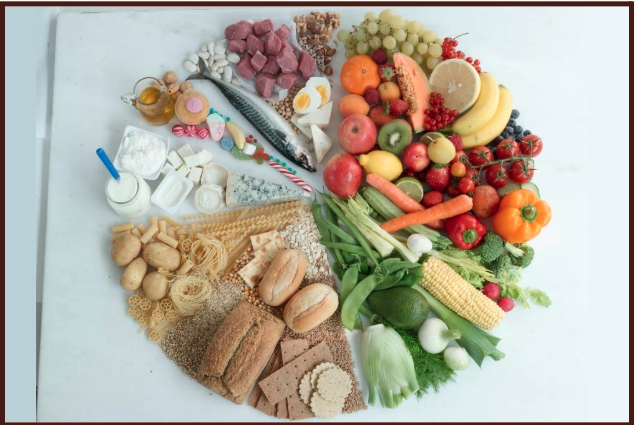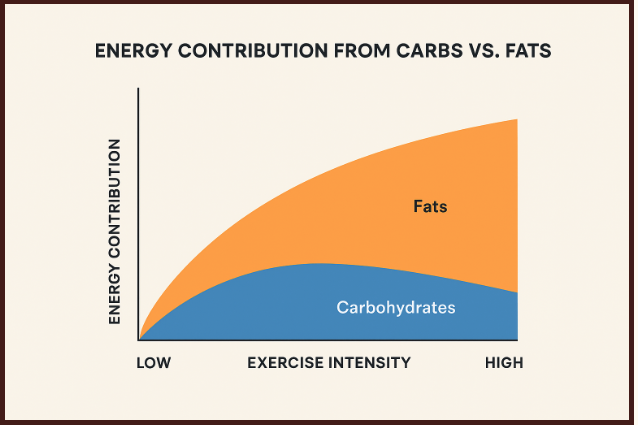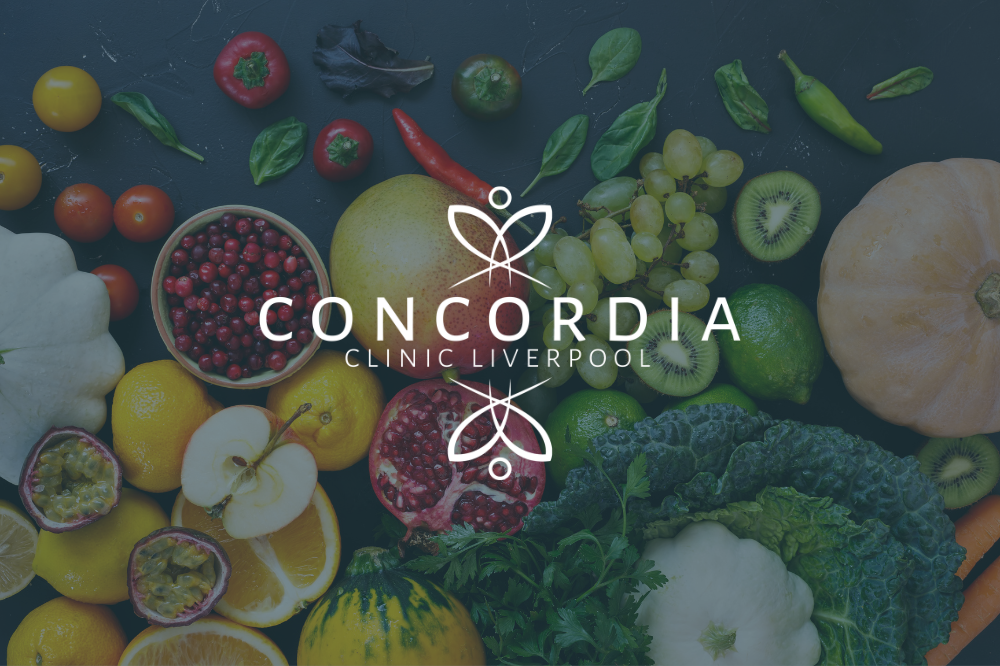Nutrition is one of the most powerful factors influencing athletic performance. The right balance of nutrients fuels your body, supports recovery, and enhances endurance – but poor nutrition can lead to fatigue, slower progress, and even injury.
At Concordia Clinic, we often see that once athletes understand their body’s nutritional needs, their performance dramatically improves, both physically and mentally.
Let’s explore this further. Read on for more on how nutrition affects athletic performance and how you can optimise your diet for your goals.
Why Is Nutrition Important for Athletes?
Nutrition can hugely affect athletic performance. Your body functions like a finely tuned machine – and nutrition is its fuel.
A balanced diet can help you:
- Maintain consistent energy during training and competition
- Recover faster after intense exercise
- Build and repair muscle tissue
- Support concentration and mental clarity
- Prevent injuries and illness
Even minor deficiencies in key nutrients can have noticeable effects on your performance.
How Nutrition Affects Athletic Performance
The balance of macronutrients ( e.g carbohydrates, proteins, and fats) can directly impact your body’s ability to perform and recover.
Take Usain Bolt, renowned Olympic sprinter, for example. Bolt credited part of his
performance and recovery to consuming nutrient-rich foods like yams (sweet potatoes), which are high in complex carbohydrates. He also credited his performance to achieving an optimal weight-to-energy ratio through proper nutrition planning.

How Carbohydrates Affect Performance
Carbs are the body’s preferred energy source during exercise. They’re stored in your muscles and liver as glycogen and used for endurance, strength, and high-intensity activity.
- Adequate carb intake can prevent early fatigue during high-intensity or endurance activities.
- Lack of carbs, however, can lead to “hitting the wall,” slower reaction times, and reduced stamina.
Studies show that athletes with low muscle glycogen (<200 mmol·kg dry weight) experience reduced time to exhaustion during continuous intense exercise (average decrease from 4.3 minutes to 2.6 minutes in high-intensity protocols).
So, without enough carbohydrates, you’ll feel tired quicker, and notice slower reaction times and reduced overall performance.
Tip – Time carb intake around workouts – a carb-rich meal a couple of hours before training can improve your endurance
How Protein Affects Performance
Protein helps to repair damaged muscle fibres and build new tissue. It’s a must-have after workouts, especially if you’re a strength or endurance athlete.
Protein can:
- Speed up recovery after intense sessions
- Support muscle growth and repair
- Help maintain lean body mass during weight loss
Some protein sources include lean meats, fish, and eggs, as well as some plant-based options, such as lentils or tofu. These sources are great for supporting recovery and long-term muscle maintenance.
Tip – Aim for 1.2–2.0g of protein per kilogram of body weight, depending on your training intensity.
How Fats Affect Performance
Carbs fuel high-intensity activity, whereas fats provide long-lasting energy. They also affect hormone production, including the hormones that regulate metabolism and muscle growth.
Eating healthy fats can:
- Promote healthy hormone levels, aiding recovery and adaptation
- Improve nutrient absorption (fat-soluble vitamins A, D, E, K)
For best performance, consume unsaturated fats from foods like avocado, nuts, seeds, and olive oil, but limit saturated and trans fats (these can impact cardiovascular health and recovery).

Note* This can vary from person to person depending on fitness, diet, body composition, and training adaptation.
Micronutrients and Athletic Performance
Vitamins and minerals might seem minor, but deficiencies can have a significant impact on your performance. Some key nutrients for athletes include:
- Iron (For oxygen transport – deficiency can cause fatigue)
- Calcium & Vitamin D (Support bone health, a must-have for impact sports)
- Magnesium & Zinc (Aid muscle function, recovery, and energy metabolism)
A varied diet rich in fruit, veg and whole foods should cover your micronutrient needs. However, be sure to monitor for any deficiencies by having regular health checks – especially if your routine requires a restrictive diet.
| Micronutrient | Food Sources |
| Iron | Red meat, poultry, fish, lentils, spinach, fortified cereals |
| Calcium | Dairy, fortified plant milks, leafy greens, almonds |
| Magnesium | Nuts, seeds, whole grains, leafy greens |
| Zinc | Meat, shellfish, legumes, seeds |
| Vitamin D | Sunlight, fatty fish, fortified dairy |
| Vitamin C | Citrus fruits, berries, peppers, broccoli |
| Vitamin E | Nuts, seeds, vegetable oils, spinach |
| B Vitamins (B1, B2, B3, B6, B12, Folate) | Whole grains, meat, eggs, dairy, leafy greens, legumes |
| Selenium | Brazil nuts, seafood, eggs, meat |
| Potassium | Bananas, potatoes, beans, spinach |
| Sodium | Table salt, sports drinks, processed foods |
Should Athletes Take Supplements?
Supplements can be helpful, but they are not a replacement for food. You should only take supplements to fill nutritional gaps or support recovery when your diet alone isn’t enough.
Some examples include:
- Protein powders for post-training recovery
- Omega-3 for joint health
- Electrolyte drinks for endurance athletes
- Vitamin D and iron (if you have deficiencies)
Why One Size Does Not Fit All
Every athlete’s body is different. There are several factors that can affect your ideal nutrition plan, such as:
- Age
- Sex
- Body composition
- Sport type
- Training intensity
- Goals
- Metabolism
- Genetics
The Role of Hydration in Athletic Performance
Even mild dehydration (as little as 2% of body weight) can reduce endurance, strength, and cognitive function. Proper hydration ensures optimal blood flow, thermoregulation, and nutrient transport.
Hydration timing tips:
- Drink 400–600ml water 2–3 hours before exercise
- Sip 150–250ml every 20 minutes during activity
- Rehydrate with electrolytes for sessions >90 minutes
Whether you have a workout prepared or not, make sure you are drinking water consistently throughout the day. To check whether you’re dehydrated, monitor your urine colour – pale yellow is ideal, whereas dark yellow suggests you need more water.
How to Create a Nutrition Strategy
Here’s a simple step-by-step for getting started with a nutrition strategy:
- Track your current intake and energy levels
- Identify where your diet could improve
- Balance macros according to your sport and goals
- Stay consistent and adjust when you need to (e.g if progress stalls)
Working with a nutrition coach can help you identify the right calorie intake, macronutrient ratios, and timing to maximise performance. This is something we can help with at Concordia Clinic.
Personalised Nutrition Support at Concordia Clinic
At Concordia Clinic, we use performance nutrition principles to help both athletes and everyday individuals achieve their goals.
Whether you’re aiming to lose weight, build muscle, or enhance your athletic output, our team can create a tailored nutrition plan that fits your goals and lifestyle.
We’ll consider your goals, training schedule, and personal preferences, and provide ongoing check-ins to track your progress and keep you on course.
If you’re ready to optimise your nutrition and elevate your performance, our specialists at Concordia are here to help you every step of the way…
Explore our nutrition services today – or take it one step further and get expert support from our Sports Psychologist to boost your overall performance.


Recent Comments